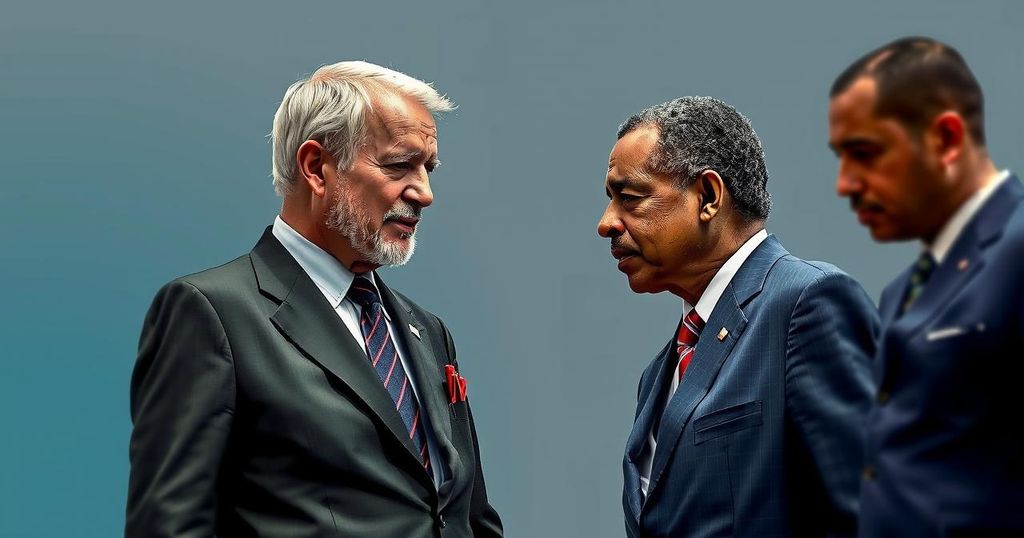President Biden’s inaugural visit to Africa focuses on Angola, aiming to strengthen U.S. economic relations and counter China’s influence. The key initiative is the Lobito Corridor, a rail project connecting mineral-rich regions to the Atlantic, reflecting a strategic shift in U.S. policy towards infrastructure investment and regional cooperation in Africa.
President Joe Biden has embarked on his first official visit to Africa as U.S. president, focusing particularly on oil-rich Angola, where he aims to reinforce U.S. economic ties and showcase a shift in policy towards greater trade and infrastructure investment in response to China’s growing influence on the continent. This historic visit marks the first by a sitting U.S. president to Angola and signifies a notably improved bilateral relationship since Angolan President João Lourenço took office in 2017, moving the country away from its previous alignment with China and Russia.
At the core of Biden’s agenda is the Lobito Corridor project, which seeks to construct a railway extending 1,344 kilometers (approximately 835 miles) from the resource-rich Democratic Republic of the Congo and Zambia, to the Angolan port city of Lobito, facilitating the transport of vital minerals such as cobalt, lithium, and copper. The U.S. involvement in this project is viewed as a direct counter to China’s Belt and Road Initiative, underscoring a strategic shift towards a more multipolar engagement in Africa’s development.
With Angola possessing rich mineral reserves essential for green technology, this initiative is timely amidst the global emphasis on sustainable energy solutions. While Biden’s administration faces uncertainties regarding potential policy shifts under a future Trump presidency, existing commitments to the Lobito Corridor project appear crucial in maintaining American interests in the region. Furthermore, Angola’s efforts to enhance its image as an attractive investment destination will be bolstered by Biden’s visit, fostering opportunities for trade and development spanning various sectors beyond natural resource extraction.
Biden’s visit occurs against the backdrop of rising competition between the U.S. and China for influence in Africa, a continent rich in natural resources that are pivotal for future technologies. Following years of near dominance by China in African investments, the U.S. is attempting to re-establish itself as a key player through initiatives that not only aim at economic benefits but also seek to forge stronger political ties with African nations. The Lobito Corridor exemplifies this approach, aiming to build infrastructure that ensures better access to markets and promotes regional trade, while also serving American economic interests in the face of Chinese expansion in mineral sectors.
In conclusion, President Biden’s visit to Angola represents a strategic pivot for the U.S. in its relations with Africa, especially in the face of rising competition from China. The Lobito Corridor project symbolizes a significant shift towards comprehensive infrastructure investment aimed at fostering local economies and ensuring sustainable resource management. Despite potential uncertainties about future U.S. policies, this initiative may play a crucial role in establishing a lasting American presence in Africa and promoting Angola as a viable investment destination.
Original Source: www.bbc.com







